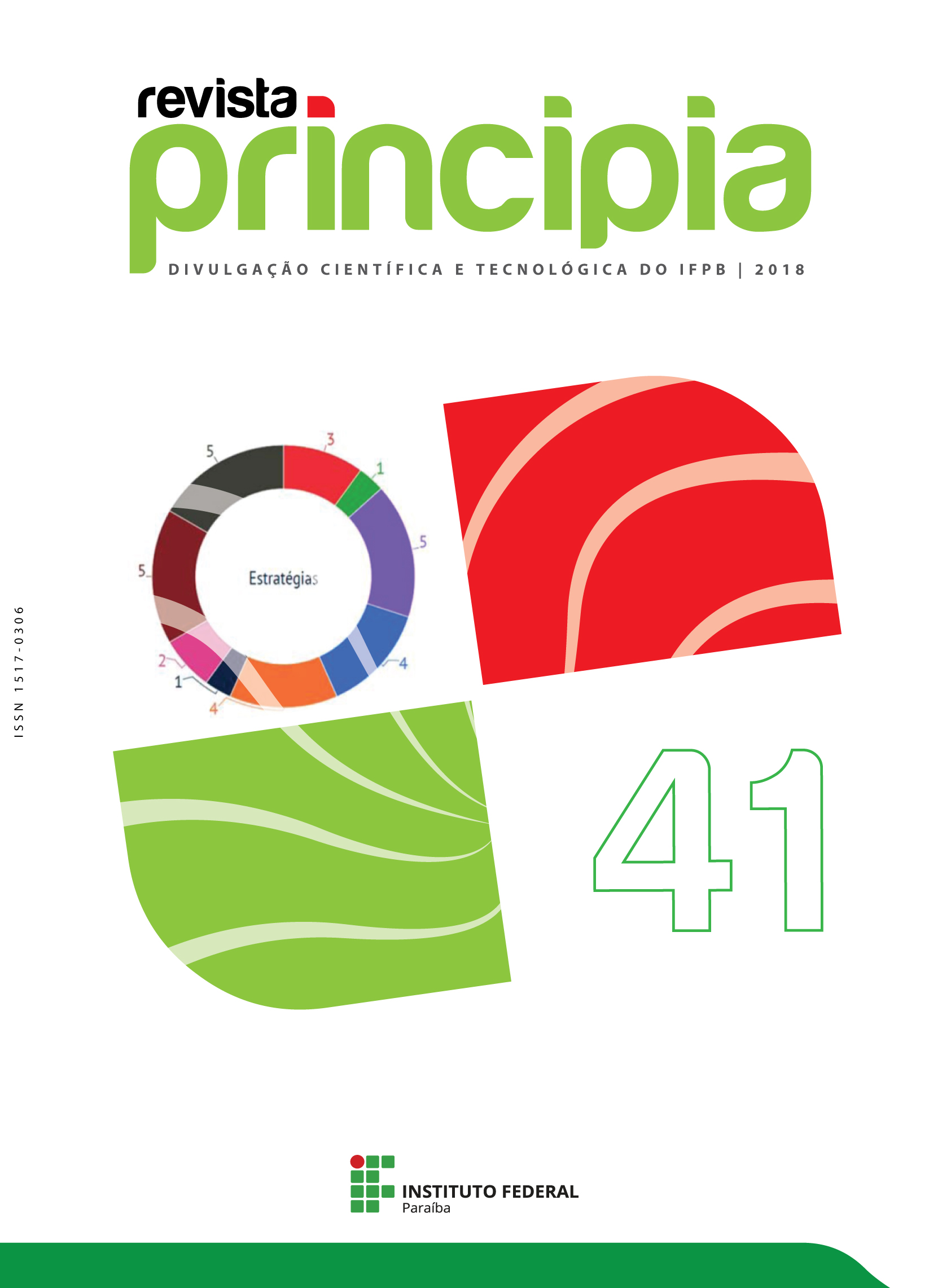Desempenho internacional de empresas exportadoras: uma análise fatorial baseada em recursos
DOI:
https://doi.org/10.18265/1517-03062015v1n41p128-138Palavras-chave:
Desempenho Internacional, Visão Baseada em Recursos, Análise FatorialResumo
Este artigo tem por objetivo identificar os fatores relacionados às capacidades organizacionais que influenciam o desempenho internacional da firma, tendo em vista a extensão e a distribuição das operações realizadas no mercado estrangeiro. A abordagem comportamental da internacionalização trata da percepção do fenômeno como processo gradual sob a perspectiva do comportamento dos executivos. Foi realizada uma pesquisa survey explanatória de corte transversal, incluindo 150 empresas exportadoras com atuação no Nordeste do Brasil. Foi formulado um modelo conceitual, com cinco constructos, representativo dos efeitos de fatores externos sobre o desempenho internacional. Os dados foram tratados aplicando a Análise Fatorial Exploratória. Como principal resultado da investigação, identificou-se os recursos organizacionais, relacionais, financeiros, humanos e físicos representam fatores de influencia sobre as estratégias internacionais.
Downloads
Métricas
Referências
ADAMAN, F.; DEVINE, P. A Reconsideration of the Theory of Entrepreneurship: a Participatory Approach, Review of Political Economy, 14(3). (2002)
ANDERSEN, O. Internationalization and market entry mode: a review of theories and conceptual frameworks. Management International Review, v. 37, n. 2, p. 27-42, 1997.
BRITO, L. A. L. VASCONCELOS, F. C.. A Heterogeneidade do Desempenho, suas Causas e o Conceito de Vantagem Competitiva: Proposta de uma Métrica. Rac, Rio de Janeiro, n. , p.107-129, 01 jun. 2004. Trimestral.
BRITO, L. A. L. VASCONCELOS, F. C. A Influência do País de Origem no Desempenho das Empresas. Rac, Rio de Janeiro, v. 4, n. 9, p.97-118, 01 out. 2005. Trimestral.
BRITO, L. A. L. VASCONCELOS, F. C. The Variance Composition of Firm Growth Rates. Bar, Rio de Janeiro, v. 2, n. 6, p.118-136, 01 jun. 2009. Trimestral.
BRUSH, C. G. International entrepreneurship: the effects of firm age on motives of internationalization. New York: Garland, 1995.
BUCKLEY, P. J.; CASSON, M. C. Analysing foreign market entry strategies: extendind the internalization approach. Journal of International Business Studies, v. 29, n. 3, p. 539-562, 1998.
BUCKLEY, P.; CASSON. M. A theory of international operation. European Research on international Business, 1979.
BUCKLEY, P.; GHAURI, P. The internationalization of the Firm. Londres: Thompson, 1999.
CHANDLER, A. D. Scale and scope. Cambridge, MA: The Belknap Press of Harvard University Press, 1990, 760 p.
CHANDLER, A.D. Strategy and structure: chapters in the history of the American industry. Cambridge, MA: Harvard University Press, 1962.
COSTA, L. F.L.G; AÑEZ, E. M; MOL; A.L.R; DAMASCENO, T.S.A. (2014). Escolas Teóricas do Processo de Internacionalização uma visão Epistemológica. Cadernos Ebape, FGV. v 15, n 4, p. 960-973, 2017
CZINKOTA, M. R. Export development strategies: US promotion policy. New York: Praeger Publishers, 1982.
DAS, Ma. Successful and Unsuccessful Exporters from Developing Countries: Some Preliminary Findings. European Journal of Marketing, v.28, n.12, p.19-33, 1994.
DeWIT, B.; MEYER, R. Strategy: Process, Content and Context. Italy: Thomson, 2004.
DHANARAJ, C.A.; BEAMISH P. W. Resource-based approach to the study of exportperformance, Journal of Small Business Management, 41, 3, 242-261, 2003.
DISTEFANO, C. The Impacto f Categorization with Confirmatory Factor Analysis. Estructural Equation Modeling. Lawrence Erlbaum Associates, 2002.
DUNNING, J. H. Toward an eclectic theory of international production: some empirical tests. Journal of International Business Studies, n. 11, spring- summer, p. 9-31, 1980.
DYER, J. H.; SINGH, H. The relational view: cooperative strategy and sources of interorganizational competitive advantage. Academy of Management Review, v. 23, n. 4, p. 660-679, 1998.
FLEURY, A. C. C.; FLEURY, M. T. L. Estratégias Empresariais e Formação de Competências. São Paulo, Atlas, 2000.
GOLDSZMIDT, R. G. Burstein; BRITO, L. A. L. VASCONCELOS, F. C. O efeito país sobre o desempenho da firma: uma abordagem multinível. RAE, Rio de Janeiro , p.12-25, 01 out. 2007. Trimestral.
GRANT, R. M. The resource-based theory of competitive advantage: implications for strategy formulation. California Management Review, v. 33, n. 3, p. 114-135, Spring 1991.
GRANT, R. M. Toward a knowledge-based theory of the firm. Strategic Management Journal, v. 17 (Winter Special Issue), p. 109-122, 1996.
HAIR, JR. J. F. et al. Análise multivariada de dados. Porto Alegre: Bookman, 1998, 2005.
HALLEN, L.; WIEDERSHEIM-PAUL, F. The evolution of psychic distance in international business relationships. In: Haag, I.; WIEDERSHEIM-
PAUL, F. (Eds.). Between market and hierarchy. Sweden: University of Uppsala, p. 15- 27, 1989.
HITT, M. A.; HOSKISSOM, R. E.; KIM, H. International diversification: effects on innovation and firm performance in product-diversified firms. Academy of Management Journal, v. 40, n. 4, p. 767-798, 1997.
HITT, Michael A. Administração estratégica. São Paulo: Pioneira Thompson Learning, 2005.
HONÓRIO, L. C.. Determinantes Organizacionais e Estratégicos do Grau de Internacionalização das empresas braceleiras. RAE, São Paulo, v. 49, n. 2, p.162-175, abr. 2009.
JOHANSON, J; WIEDERSHEIM-PAUL, F. The internationalization of the firm: four Swedish cases. The Journal of Management Studies, p. 305322, 1975.
Downloads
Publicado
Como Citar
Edição
Seção
Licença
Esta revista, seguindo as recomendações do movimento de Acesso Aberto, proporciona seu conteúdo em Full Open Access. Assim os autores conservam todos seus direitos permitindo que a Revista Principia possa publicar seus artigos e disponibilizar pra toda a comunidade.
A Revista Principia adota a licença Creative Commons 4.0 do tipo atribuição (CC-BY). Esta licença permite que outros distribuam, remixem, adaptem e criem a partir do seu trabalho, inclusive para fins comerciais, desde que lhe atribuam o devido crédito pela criação original.
Os autores estão autorizados a enviar a versão do artigo publicado nesta revista em repositório institucionais, com reconhecimento de autoria e publicação inicial na Revista Principia.
Demais informações sobre a Política de Direitos Autorais da Revista Principia encontram-se neste link.






















 (precisa estar logado)
(precisa estar logado)






